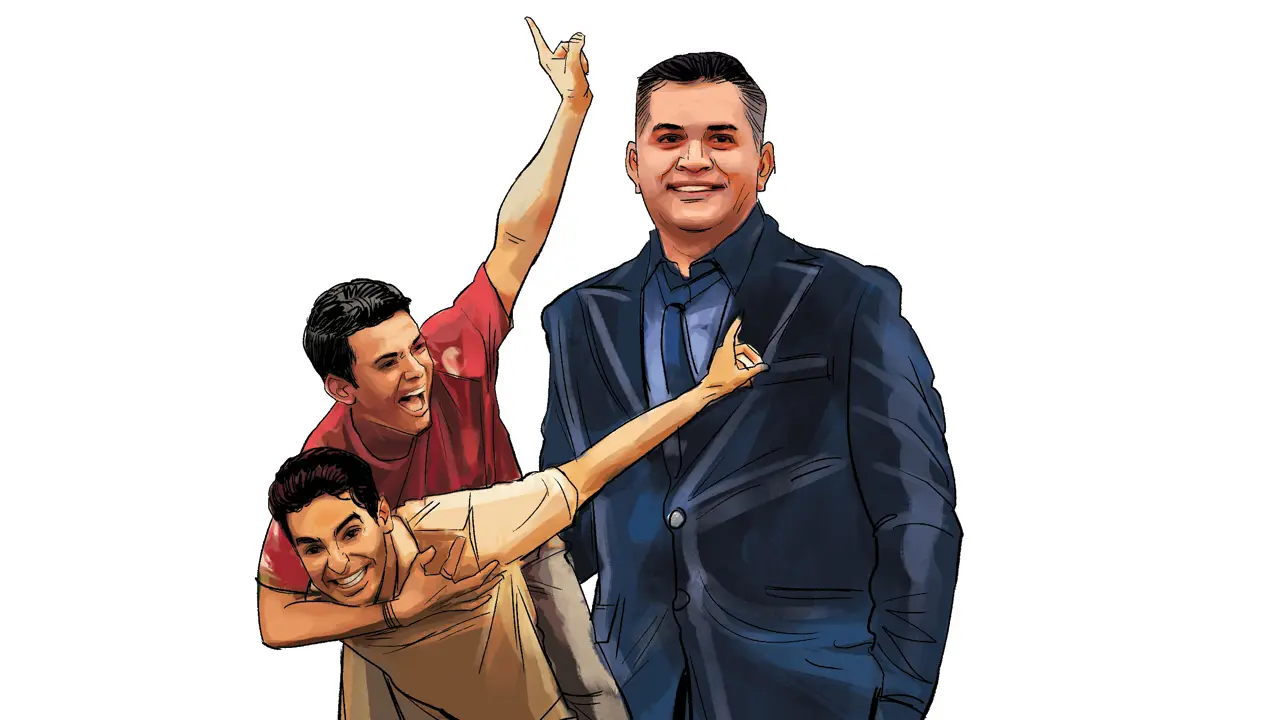These are men who can’t let their ambition show. It’s unseemly for a cardinal to campaign openly for the papacy — especially while the occupant of the throne of St. Peter’s is still alive. However, as the church enters the holiest period of its calendar — the 40 days of Lent that lead to Good Friday and Easter — Vaticanologists will be scrutinizing those tasked with substituting for Francis at the processions, rituals and masses that are the sacramental core of Catholic Christianity. Are these the favored candidates of Francis? Or is he trying to keep prelates on side by offering them flattering roles as his understudies? I assume that Francis has a say in the scheduling. He may have trouble breathing, but the pope is not senescent and remains the church’s absolute monarch on earth. He has reportedly been conducting Vatican business from his bed in Gemelli Hospital, including meeting with his secretary of state, Cardinal Pietro Parolin.
Standing in for the ailing pontiff during Lent offers a cardinal the opportunity to impress his de facto candidacy not just on the nearly 1.4 billion believers around the world but, more specifically, on his peers. It’s a delicate role because the attention can remind electors of flaws as well as strengths. For this week’s Ash Wednesday ceremonies, the Vatican announced that Cardinal Angelo De Donatis will preside over liturgies leading to mass at the Basilica of Santa Sabina, elements of which date back to the 5th century. Last year, De Donatis, 70, was put in charge of the office that oversees excommunication and the forgiveness of serious sins. As such, it’s appropriate for him to oversee the most penitential of church seasons.(1)
De Donatis is not among the papabili (the “pope-ables” in Italian) listed in the College of Cardinals Report — a website put together by independent Vatican journalists. There will be deeper speculation if any of those 22 frontrunners plays a prominent role in Lenten ceremonies if Francis continues to be hospitalized. My favorite is Cardinal Luis Antonio Tagle of the Philippines, who’s now based in Rome as head of the church’s department of evangelization. I’m being parochial: I was born in the Philippines of Chinese ethnicity, and Tagle has Chinese roots through his maternal grandmother. We’re also roughly the same age.
It helps to be in Rome to be in line to substitute for an ailing pope, as demonstrated by a successful non-campaign for the papacy in 2005. As John Paul II slipped into the final throes of the Parkinson’s Disease that was taking his life, whispers went around that Germany’s Cardinal Joseph Ratzinger was once again a viable candidate. In the previous two years, Vatican observers had increased the odds against his rise to the top: Ratzinger had health issues, including two strokes; he was unpopular because of his role as John Paul’s ideological enforcer (the cardinal was head of the office that was the evolutionary descendant of the Inquisition); his nickname panzerkardinal was far from warm and fuzzy. Many cardinals wanted a more pastoral and less magisterial approach to the papacy — and theologian-in-chief Ratzinger didn’t fit that bill. One insider told my then-Time colleague Jeff Israely, who was the magazine’s Rome bureau chief: “Getting elected Pope is more a question of how many enemies you have than friends. And I thought Ratzinger still had too many enemies.”
In late February, when John Paul was admitted to the hospital, Ratzinger gave a sermon at the funeral of a prominent Catholic layman that outshined in vigor the eulogy delivered by a cardinal who was at the top of papabili lists at the time. Ratzinger prepared the much-anticipated text for the Good Friday readings of the Stations of the Cross — a role likely assigned by John Paul before his health took a turn for the worse. When the pope died six days after Easter, Ratzinger was again in the spotlight as he presided over the April 8 funeral mass. And as dean of the College of Cardinals — another John Paul appointment — he was seen as the man in charge, especially by visiting cardinals from around the world. Ratzinger became the man to see, even if he wasn’t the leader of the Vatican — yet.
By the fourth round of voting at the conclave, Ratzinger had amassed enough support to win the papacy and, without hesitation, chose the name Benedict XVI as if he’d prepared it all along. It was tribute in part to Saint Benedict of Nursia, who laid down the rigid rules for Christian monastic life. But the Holy Spirit moves in mysterious ways. According to one anonymous cardinal who took note of the tallies in the Sistine Chapel, the prelate who came in second place was Jorge Mario Bergoglio, archbishop of Buenos Aires. Eight years later, he would become Pope Francis.
More From Bloomberg Opinion:
(1) De Donatis, 70, reportedly questioned the pope’s decision to waive the statute of limitations to reopen an investigation into decades-old sexual abuse claims against a prominent priest-mosaicist.
This column does not necessarily reflect the opinion of the editorial board or Bloomberg LP and its owners.
Howard Chua-Eoan is a columnist for Bloomberg Opinion covering culture and business. He previously served as Bloomberg Opinion’s international editor and is a former news director at Time magazine.
More stories like this are available on bloomberg.com/opinion
Catch all the Business News, Market News, Breaking News Events and Latest News Updates on Live Mint. Download The Mint News App to get Daily Market Updates.
MoreLess





